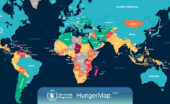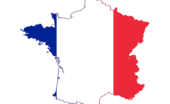Re Ian Bremmer 'Could third-party candidates upend the 2024 US election?' 3 April The current political movement in the USA…
Healthcare and Traditional medicine
Written by Diana Thebaud Nicholson // July 1, 2010 // Health & Health care // Comments Off on Healthcare and Traditional medicine
Traditional medicine is the sum total of knowledge, skills and practices based on the theories, beliefs and experiences indigenous to different cultures that are used to maintain health, as well as to prevent, diagnose, improve or treat physical and mental illnesses.
Traditional medicine that has been adopted by other populations (outside its indigenous culture) is often termed alternative or complementary medicine.
Herbal medicines include herbs, herbal materials, herbal preparations, and finished herbal products that contain parts of plants or other plant materials as active ingredients. World Health Organization (WHO) Traditional Medicine Fact Sheet (SciDev.Net) Integrating modern and traditional medicine: Facts and figures
1 July
The Nigeria Natural Medicine Development Agency (NNMDA) plans to train 8,000 traditional medicine practitioners in 2010. According to the Director-General of the agency, Tamunoibuomi Okujagu, the training, aimed at making the practitioners fit into the national healthcare delivery system, will commence in August. More
30 June
The imperatives for traditional medicine
Integrating modern and traditional medicine requires breaking down the legal and regulatory barriers that disadvantage the poor.
(SciDev.Net) Before the colonial age, medicine across the tropics was almost entirely confined to traditional remedies and practices tailored to local cultures and natural resources.
The introduction of modern medicine has certainly been successful on one level. The colonial powers were much more adept at controlling epidemics, deploying mass vaccination programmes against smallpox, for example, and removing tumours and cataracts.
But colonial-era medicine has left another legacy — the marginalisation and downgrading of traditional medicine. But, in the race to meet the Millennium Development Goals, combat increasing drug resistance and tackle new diseases, traditional medicine is making a comeback. Governments, drug companies, researchers and international aid organisations increasingly recognise the value of traditional medicine and its practitioners — as a source of potential new blockbuster drugs and as alternative providers of primary healthcare.
Ending medical dominance over the developing world
Traditional medical cultures need a true partnership with modern medicine, say Bhushan Patwardhan, Gerard Bodeker and Darshan Shankar.
Despite the huge advances in modern medicine, most people in the developing world still rely on traditional — and effective — knowledge to treat illness and disease.
Its value in providing affordable healthcare has been recognised by the WHO, and now national and international policymakers are calling for partnerships between modern and traditional medicine to help bridge the equity gap in global public health.
24 February
BioMed Analysis: Keep traditional knowledge open but safe
Databases of traditional medicines can help protect against biopiracy while opening the doors for new drug discovery, says Priya Shetty.
Traditional biological knowledge tends to be uncomfortably juxtaposed between two worlds — the ancient, where knowledge was freely shared by all, and the modern, where it is jealously protected through patents.
12 February 2009
Traditional Medicine in Africa- A wealth of knowledge on the verge of demise!
(Voice of America) In most African societies,traditional medicine plays an important in the lives of millions who can’t access western medicine. It is part of the first set of response mechanisms that people rely on in cases of medical emergencies. In other societies the whole health system of the community is hinged in medicines plucked from leaves and roots found in their backyards.
7-9 November 2008
WHO Congress on Traditional Medicine,
The “Beijing Declaration” was adopted, promoting the safe and effective use of traditional medicine. It calls on WHO Member States and other stakeholders to take steps to integrate traditional medicine (TM) / complementary and alternative medicine (CAM) into national health systems.
13 February 2004
Recognition and Respect for African Traditional Medicine
(IDRC) … the Declaration of Traditional Healers — which [Dr Sekagya Yahaya Hills] presented to the 13th International Conference on AIDS and STIs in Africa, held in Nairobi in September 2003 — well summarizes the role of traditional medicine in Africa. “As traditional healers, we are the most trusted and accessible health care providers in our communities,” the declaration states. “We have varied and valuable experience in treating AIDS-related illnesses and accept the great responsibility of continuing to do so.”
The declaration also recommends that traditional healers be involved in AIDS research, that there should be increased collaboration between conventional and traditional medicine, and that appropriate treatment and care for AIDS patients should include safe and effective traditional healing therapies.



